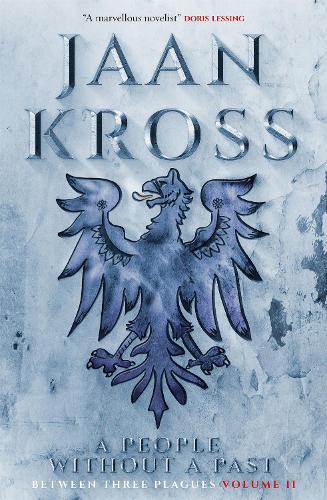
A People without a Past: Between Three Plagues Volume 2
(Paperback)
Publishing Details
A People without a Past: Between Three Plagues Volume 2
By (Author) Jaan Kross
Quercus Publishing
MacLehose Press
13th March 2018
8th March 2018
United Kingdom
Classifications
General
Fiction
Fiction in translation
894.54533
Physical Properties
Paperback
432
Width 128mm, Height 198mm, Spine 30mm
300g
Description
The second part in an epic historical trilogy - The Estonian answer to Wolf Hall - by the nation's greatest modern writer The year is 1563, and by any account Balthasar Russow can be said to have risen in the world. Fresh from his studies in the German town of Stetten, he has assumed the role as pastor of Tallinn's Holy Ghost Church. Moreover, he is betrothed to a maiden of the town - much to the chagrin of her father, who has no wish to welcome peasant stock to the family when there is no shortage of upstanding young German men - and is poised to begin the chronicle that will ensure his everlasting fame. But tribulations still await the now not-quite-young Pastor - Livonia is still plagued by foreign powers, with Tallinn braced to withstand a prolonged Muscovite siege. And he will discover that marriage is a often a battlefield in itself. Translated from the Estonian by Merike Beecher
Reviews
He's a marvellous novelist - his scope and depth make him a world writer - and they should just hurry up and give him the Nobel. -- Doris Lessing He deserved a Nobel prize and would probably have got it had he written in any other language but Estonian. -- Neil Taylor Guardian. He's almost alone in writing in the older European tradition of the large-scale historical novel. I'd argue that Kross is heir to the 'great' Russo-European 19th century novelists; his fiction has Tolstoyan sweep. On reading him, moreover, we rediscover that Estonia was always resolutely in Europe and not some obscure outpost this side of the Urals. -- Fiona Sampson No stranger to oppression himself, Kross writes about it with a poignancy devoid of anger. -- Adam Zamoyski
Author Bio
Jaan Kross is Estonia's best-known and most widely translated author. He was born in Tallinn in 1920 and lived much of his life under either Soviet or German occupation. He won countless awards for his writing, including The National Cultural Award, The Amnesty International Golden Flame and the Prix du Meilleur Livre Etranger. He died in 2007.
